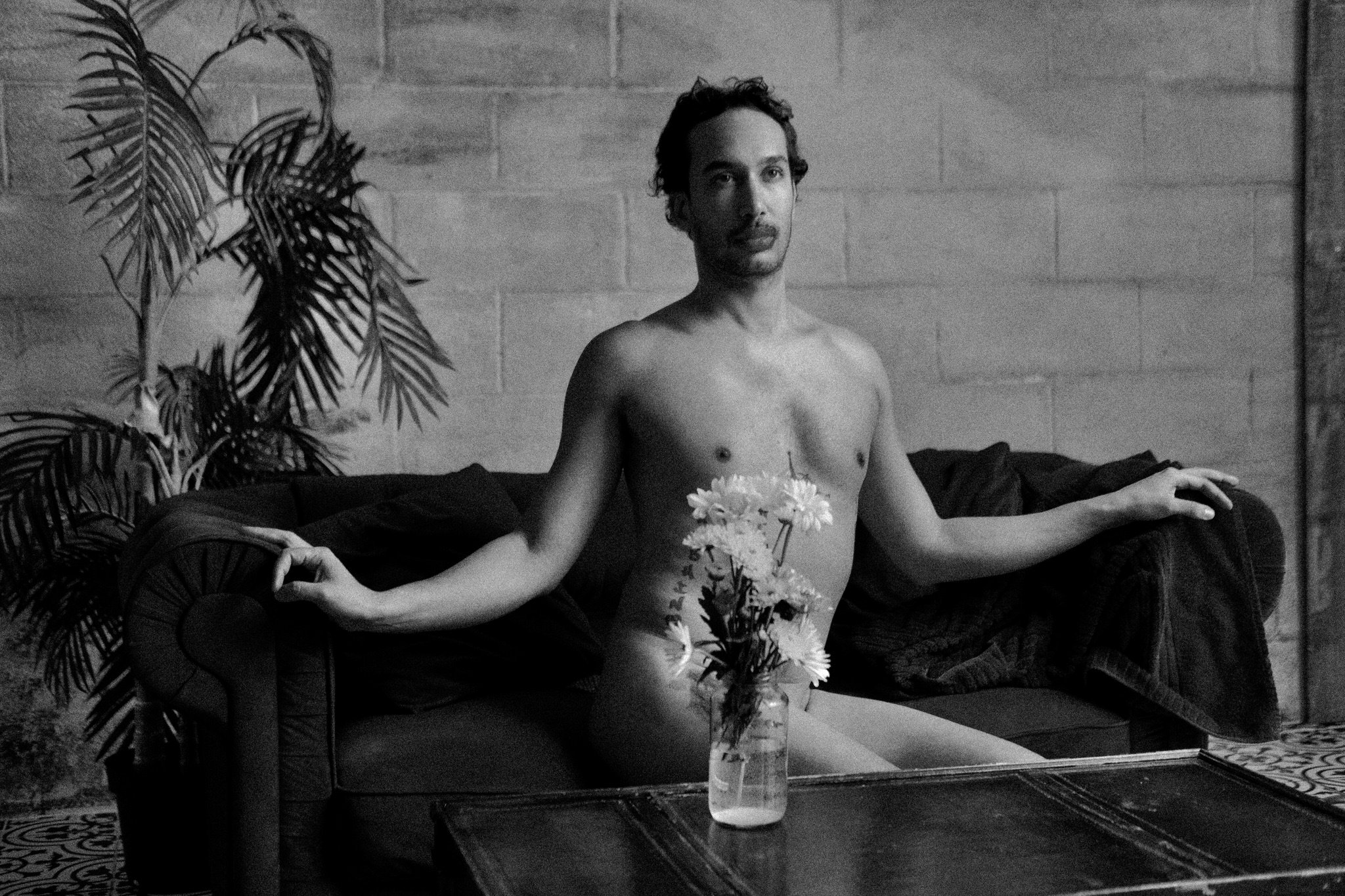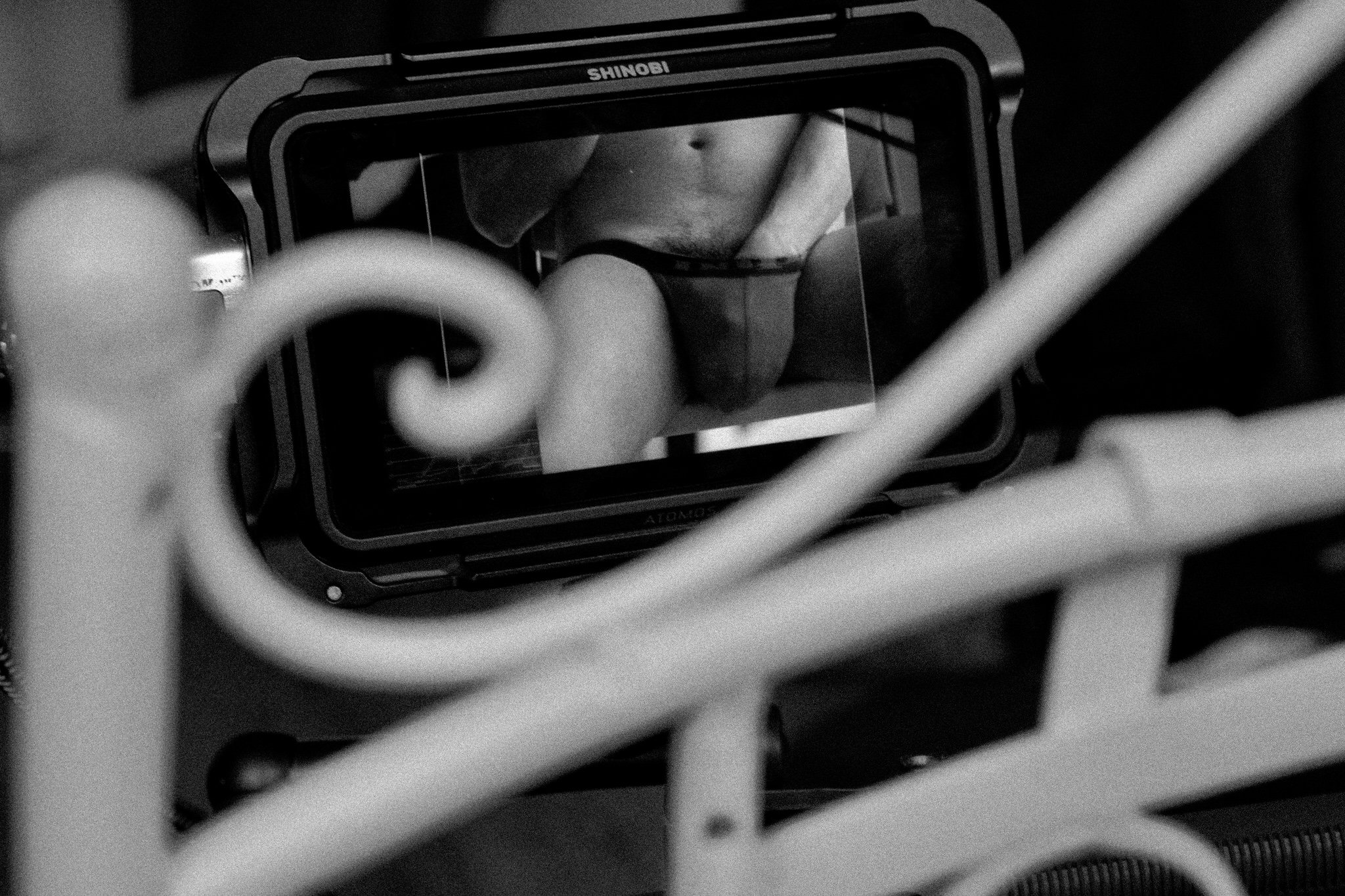Agatha
Because of its unapologetic and often brutally honest subject matter not typically addressed in the Latin American mainstream, Agatha receiving national consideration is a testament to the universality of the simple and highly topical narrative: what lies beneath the surface of the human psyche when confronted with profound loneliness, isolation, and anxiety.
Agatha was inspired by a voyeuristic encounter in the months following De La Chica’s arrival to New York City; looking out the window of the apartment where the film’s director and composer was staying, he noticed a mysterious man that De La Chica felt certain knew he was being watched, but admits he might have imagined that detail. The incident was the impetus behind De La Chica’s solo piano cycle Voyeuristic Images, Op. 10, which underlies Agatha’s starkly intimate imagery and emotional trajectory.
Watch Agatha on AMAZON PRIME | Watch here
“De La Chica exhibits directorial competency in creating a fully-realised canvas; through his melancholic score, long takes and unkempt man and cave surrounded by alcohol and drugs, Agatha evokes isolation and loneliness, unfulfilled sexual desire and repression, and depression to the point of self—termination.” — Adrian Perez Lonely Wolf
Album TRAILER
Synopsis
Próspero, a young Latin photographer who has moved to New York, faces in one morning the fears of his existence and future. Carlos watches him from the front building, while trying to solve the mystery of his neighbor and his strange friend Agatha.
It is Monday morning and Próspero has just arrived at his apartment. He has been partying all weekend and he is exhausted. In the building across the street, standing by his living room window, a strange man is looking at him. It is Carlos. A Colombian musician who has just moved to NY. Both men have been eying each other several times, but they don't know each other. Nor do they know their respective stories. Stories of immigrants, of loss, of break ups, of search. Carlos is fascinated by Próspero's life. When he comes home from Bushwick high from the drugs after the parties, he composes songs and imagines Próspero's life. But that morning everything is different. Próspero thinks that the most ordinary morning in someone's life can become the resolution to a life. Carlos observes, intrigued, from the couch, the story he has created through a window and he observes Agatha, a mysterious woman who appears sometimes in Próspero's apartment and who is in love with Carlos. Próspero is determined to be done with his questions. In a city full of people, loneliness is the only companion.
Actor Augusto Guzmán
Photo by Julián De La Chica
The CREW
Director: Julián De La Chica
Director of Photography: Junting Zhou
Augusto Guzmán as Próspero
Altagracia Mecía Pérez as Francisca
Julián De La Chica as Carlos
Film NOTES
Agatha is a film seen and told from the perspective of a composer. As with De La Chica’s musical work, in Agatha he explores what is not obvious, what is uncomfortable, what creates impatience or anxiety. It is his intent that the viewer lives the story through a window, just like he did. Watching someone else's life in a building in front of you; a story unfolding based on what you see but do not know. This is why De La Chica uses slowness, cycles and repetition. He proposes a time frame for the viewer to invent their own story. In Agatha, one is never really sure about who tells the story, if Carlos was a real voyeur or Próspero filmed himself. Agatha explores silence, timeless time, and the eternity of decadence.
Actor Augusto Guzmán
Photo by Julián De La Chica
The Process
In my process as a composer and/or experimenter, "everyday life” as a situation has been fundamental to my creative development. And, perhaps because I belong to a generation that has managed to take image (film, TV, graphic) to other levels of perfection, image, as such, is crucial in my stories. I write about what I see, therefore I write about what I live.
I spent about 8 months visiting friends who lived in Soho, NY. I had just arrived in NY, and I just wanted to go out and get to know the city more. We used to go out a lot, and sometimes, I slept at my friends' places, on the sofa, so as not to take the train so late to Harlem, where I lived at the time. Anyway, I didn't have the money for a taxi fare. That's how I lived this story. From the front window. I'm sure this mysterious man knew that I saw him. And maybe he felt morbid that I saw him. Maybe it was just my imagination and I didn't realize it. Who could know for sure what was happening there?
— Julián De La Chica.
The Music
Listening to Voyeuristic Images, Op. 10, No. 1
Award-winning soundtrack alongside acclaimed motion picture, Agatha, both by composer/filmmaker Julián De La Chica. Featuring solo piano with exposed, dissonant harmonies and fragile melodic lines, it is a vital component to the film's exploration of the psyche of loneliness, and its unapologetic narrative simplicity.
Festivals & AWARDS
Barcelona Indie Filmmakers Festival - Official Selection
Florence Film Awards - Winner Best Picture
Berlin Underground Film Festival - Winner Best Soundtrack
New Cinema - Lisbon Film Festival - Winner Best Cinematography
New Cinema - Lisbon Film Festival - Honorable Mention: Best Experimental
The Berlin Flash Film Festival - Official Selection
Madrid Indie Film Festival - Official Selection
Assurdo Film Festival - Nominee Best Soundtrack
Lebanese Independent Film Festival - Winner Best Foreign Film
The IndieFEST Film Awards - Winner LGBT Award of Recognition
Ciudad de Mexico International Film Festival - Official Selection
Roma International Film Awards - Winner Best Film LGBT
Venice Film Awards - Winner Honorable Mention: Best Experimental
Phoenix Short Film Festival - Official Selection
Montreal Independent Film Festival - Semi Finalist Best Experimental
New York Movie Awards - Winner Best Experimental
New York Movie Awards - Honorable Mention: Best Cinematography
Sweden Film Awards - Finalist Best Film LGBT
Prague International Film Festival - Winner Best Experimental
Prague International Film Festival - Honorable Mention: Best Cinematography
Sicily Independent Film Awards - Finalist Best Experimental
Rome Independent PRISMA Film Awards - Official Selection
Dumbo Film Festival - Semi Finalist Best Experimental
Chicago Indie Film Awards - Official Selection
Reykjavik Visions Film Festival - Winner Best Actor
Festival de Cine de Bogotá - Winner Special Mention: Best International
Asterisco Festival Internacional de Cine LGBTIQ+ - Official Selection
Blow-Up International Arthouse Film Festival - Semi Finalist
Tokyo International Film Festival - Winner Best Film Score
Tokyo International Film Festival - Winner Best LGBT Film
New Wave Short Film Festival - Winner Best LGBT Film
Oslo Film Festival - Winner Award of Recognition: Best Foreign
Lonely Wolf London International Film Festival - Finalist Best Queer Film
Seoul International short film Festival - Finalist Best LGBT Film
Brazil International Independent Film Festival - Official Selection
Press
Interview with Composer Julián De La Chica Chicago Movie Mag
Article about Agatha Film Daily
Review by PRISMA Rome Independent Film Awards
Julián De La Chica Interview Radio Block Talk Radio
Julián De La Chica Interview Vents Magazine
Review by Adrian Perez Lonely Wolf
Julián De La Chica Interview The Music and Myth
Julián De La Chica Interview Irreverence Group Music
Reviews
"There is something Almodovarian about De La Chica’s work; though Almodovar’s lens idolises male body perfection, De La Chica’s romanticises imperfection to the point of repellence."
— Adrian Pérez
"The dark, pensive music captures moments of intimate, sometimes anonymous confessions, painful recollections and nocturnal reflections on life, death, love and loss."
— Andrei Cherascu
"An elegant, original, poetic film that touches us with delicacy. Julián De La Chica is an author to follow."
— Prisma Film Festival
“... Agatha speaks about the decadence of “dead times”. In a very poetic and intimate language, the film explores a regular morning in the life of Próspero, a young Latino photographer who has moved to the big city in search of opportunities, as well as an identity. De La Chica takes us into Prospero's mind in a very slow and raw way. There is nothing hidden, although there is much that is not said...”
— Chicago Movie Magazine
“… and like a silhouette that emerges by contrast, our skin also bears the wonderful and at times suffered signs of our soul. An elegant, original, poetic film that touches us with delicacy. Julián De La Chica is an author to follow.”
— Adrian Perez Lonely Wolf



